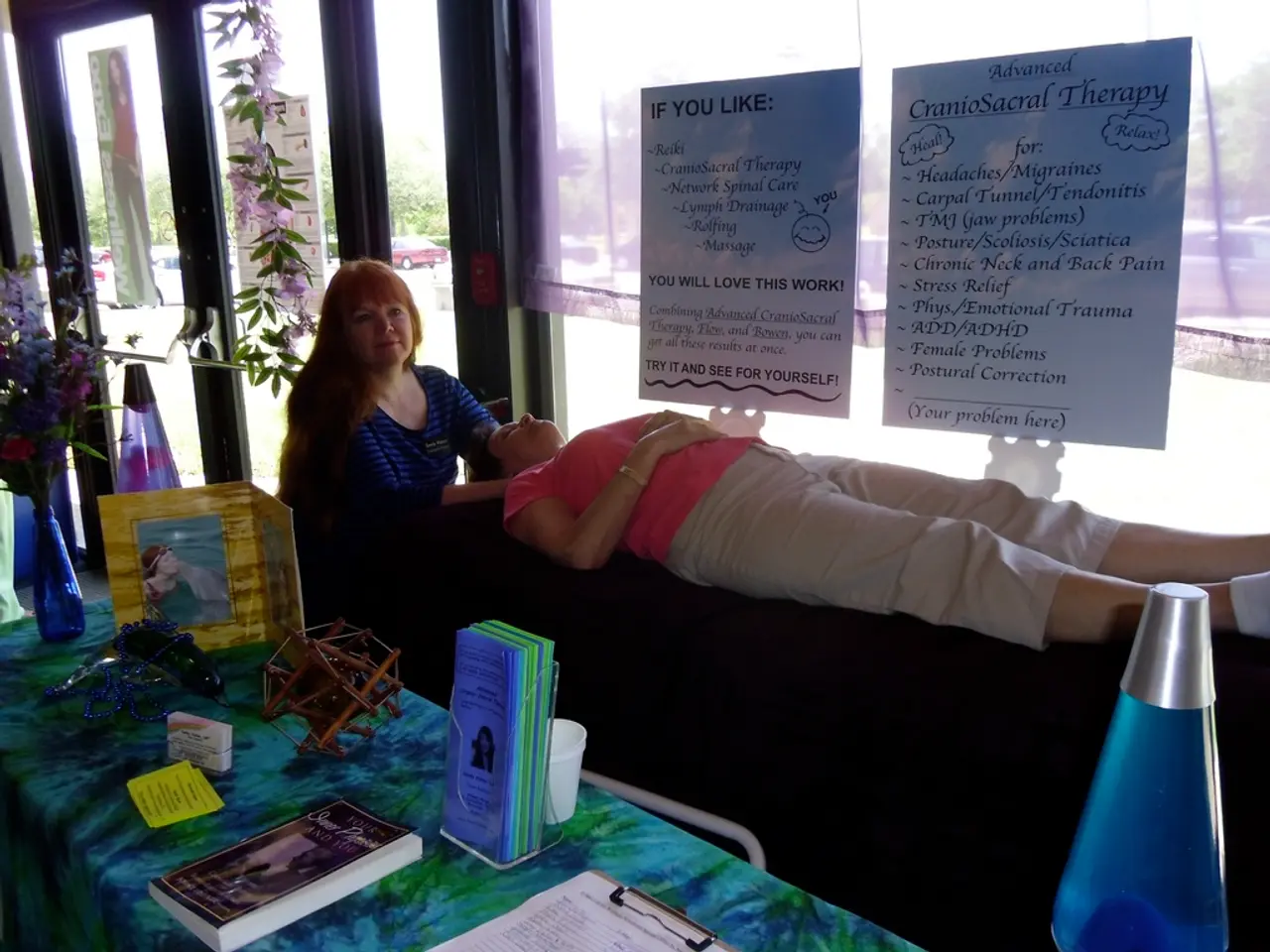Impact of Psoriasis on Mental Wellbeing: Quiz, Strategies, and Additional Information
Psoriasis, a chronic skin condition, not only affects the physical appearance but also takes a toll on the mental health of those affected. Managing feelings that arise alongside psoriasis is an integral part of a care plan.
The visible nature of skin lesions often causes embarrassment and social stigma, leading to feelings of social anxiety and isolation. The chronic and systemic nature of psoriasis, often accompanied by comorbidities like psoriatic arthritis and systemic inflammation, adds to physical discomfort and mental strain. The uncertainty and unpredictability of flare-ups may trigger worry and stress. As a result, psoriasis significantly increases rates of anxiety, depression, shame, sadness, worry, and stress, profoundly impacting quality of life and emotional wellbeing.
Recognising and treating the mental health effects of psoriasis alongside skin management leads to better overall quality of life. A holistic approach combining medical treatment, psychological support, and healthy lifestyle practices is essential in coping with the emotional burden of psoriasis.
Effective coping strategies include seeking emotional support from trusted friends, family members, or mental health professionals, counselling therapies such as cognitive-behavioral therapy (CBT), stress management techniques like mindfulness, meditation, breathing exercises, yoga, and tai chi, lifestyle adjustments like maintaining a balanced diet, regular exercise, limiting caffeine and stimulants, and establishing good sleep routines, and medical treatment of psoriasis itself, particularly modern biologic therapies.
The mental health check-in is a tool to start the process of managing mental health alongside psoriasis. It can help individuals monitor their mental health over time, seek out additional mental health support if needed, develop coping strategies for dealing with the emotional aspects of psoriasis, and provide a look at how well someone copes with the condition. However, it is not a replacement for professional mental health care.
It's important to remember that the symptoms of psoriasis can affect people's relationships, and addressing both the physical and mental health aspects of the condition is crucial for improving overall wellbeing. By understanding and managing the mental health impact of psoriasis, individuals can lead happier, healthier lives.
- The mental health impact of psoriasis is significant, leading to increased rates of anxiety, depression, shame, sadness, worry, and stress.
- A holistic approach to managing psoriasis, including medical treatment, psychological support, and healthy lifestyle practices, is essential in coping with the emotional burden.
- Counselling therapies like cognitive-behavioral therapy (CBT), stress management techniques, and lifestyle adjustments can be effective coping strategies.
- The visible nature of skin lesions often causes embarrassment and social stigma, leading to feelings of social anxiety and isolation.
- The mental health check-in can help individuals monitor their mental health over time, seek out additional mental health support if needed, and develop coping strategies.
- The chronic and systemic nature of psoriasis, often accompanied by comorbidities like psoriatic arthritis and systemic inflammation, adds to physical discomfort and mental strain.
- The uncertainty and unpredictability of flare-ups may trigger worry and stress, negatively impacting quality of life and emotional wellbeing.
- By understanding and managing the mental health impact of psoriasis, individuals can lead happier, healthier lives, recognizing that addressing both the physical and mental health aspects of the condition is crucial for overall wellbeing.




